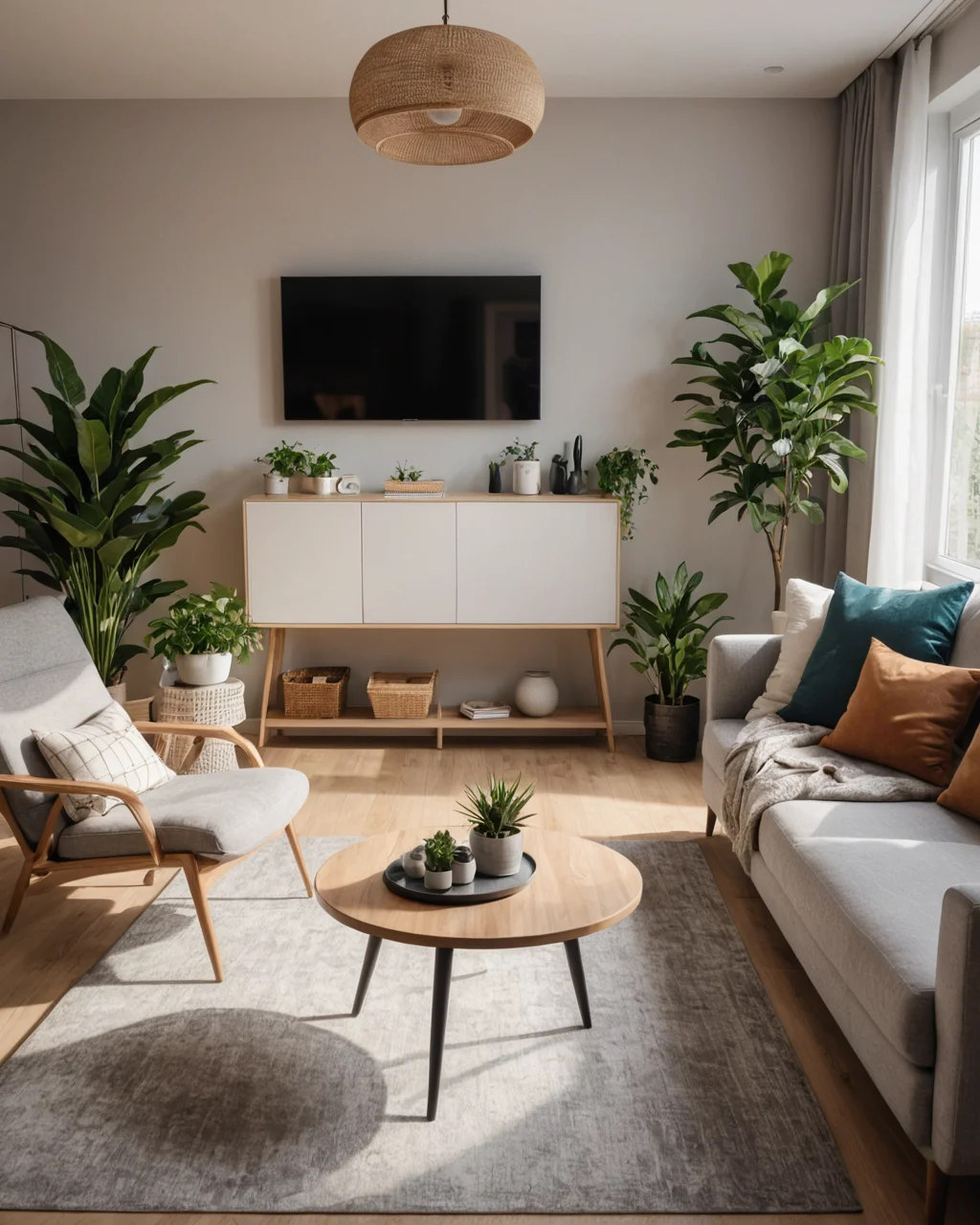In today’s world, small apartments are becoming increasingly popular. However, despite the limited space, it is important to create harmony and comfort that will help support our mood and spirit. Feng Shui, the ancient teaching on harmonizing space, offers many solutions that will help fill your living room with positive energy. In this article, we will explore how to properly organize your living room space in a small apartment from a Feng Shui perspective.
Energy and Space: The Foundation of Feng Shui
Every room, including your living room, is filled with energy, which in Feng Shui is called Qi. This energy affects our mood, well-being, and overall spiritual state. Understanding the concept of Qi is the first step to creating a harmonious space. Qi can flow freely and enrich the space, but for this, it is necessary to organize the room correctly to avoid stagnant energy, which can be depressing and cause discomfort.
The role of space in creating harmony cannot be underestimated. Spacious rooms facilitate the free movement of Qi, and in small apartments, it is important to consider every corner. You need to strive to provide enough open space for energy to circulate unimpeded. This can be achieved by using compact furniture and minimizing unnecessary items.
Small apartments can negatively affect energy if proper attention is not paid to space organization. Too many things cluttering the space create a chaotic effect and hinder the free flow of Qi. Pay attention to storage organization and maximize space to make the room lighter and airier.
Colors and Their Impact on Perception
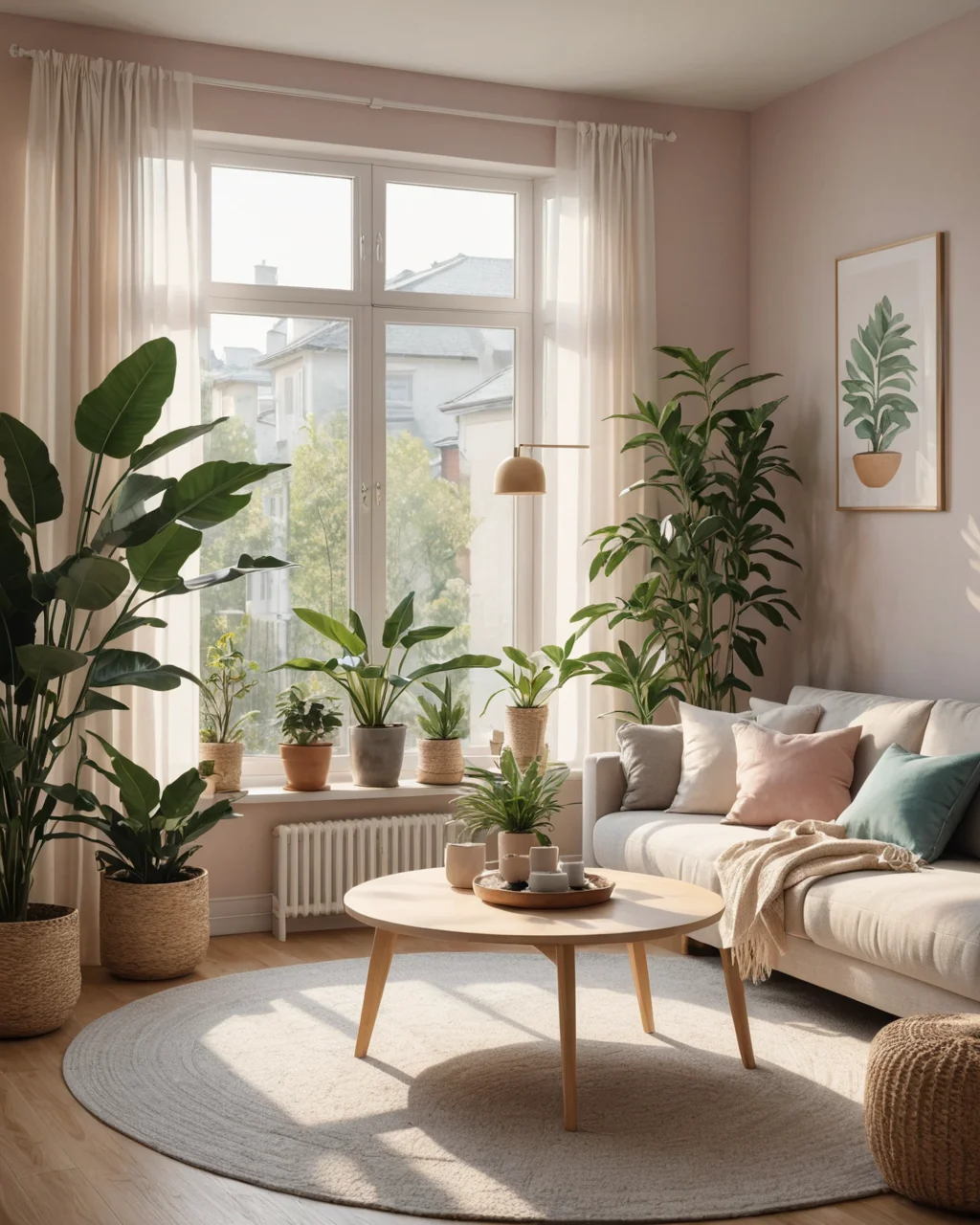
The color palette used in the interior has a significant impact on the perception of space and spiritual state. In Feng Shui, colors are given special importance, and each of them carries unique symbolism. To create a cozy atmosphere in the living room, it is worth choosing warm and calming shades, such as pastel tones, cream, beige, and soft green.
The symbolism of colors in Feng Shui is diverse. For example, green is associated with growth and harmony, it helps to relax and restore strength. Blue and light blue promote calmness and tranquility, while warm shades of yellow or orange can add joy and positive energy. It is important to choose colors that will contribute to creating the desired atmosphere in your space.
Furthermore, the right choice of colors can significantly improve mood and support spiritual strength. For example, adding bright accents in the form of pillows, paintings, or decor will create a dynamic atmosphere, while more neutral tones in larger interior elements will help achieve harmony. By playing with color accents, you can change the mood of the room according to your needs and feelings.
Furniture and Its Arrangement: The Key to Harmony
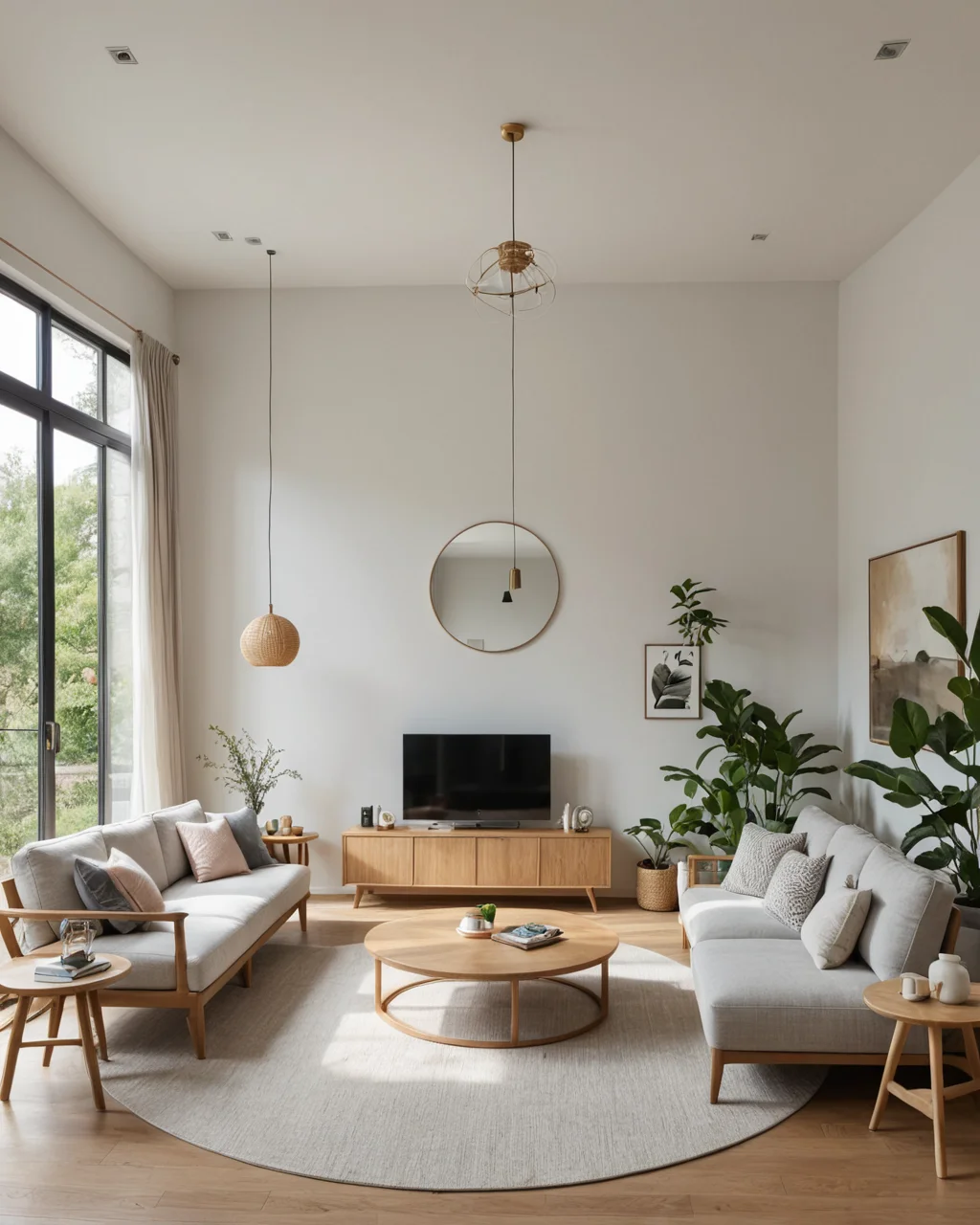
Proper furniture arrangement is one of the most important aspects of Feng Shui, which helps optimize space and improve Qi flow. In a small apartment, it is especially important to choose compact and functional furniture items. Using multi-functional furniture, such as sofa beds or tables, can significantly save space and make the space more versatile.
The arrangement of furniture itself is also an important point. You should avoid placing furniture in a way that blocks passages or creates a sense of confinement. Make sure you have enough space for free movement so that Qi can circulate easily. Additionally, it is recommended to avoid sharp corners, which can create tension and discomfort.
Harmonious furniture arrangement also contributes to improving mood. For example, a sofa placed in the center of the room can create a sense of safety and security, while open spaces near windows will help attract natural light and positive energy. When arranging furniture, you should always consider not only functionality but also the feeling of comfort it creates.
Rest and Concentration Zones
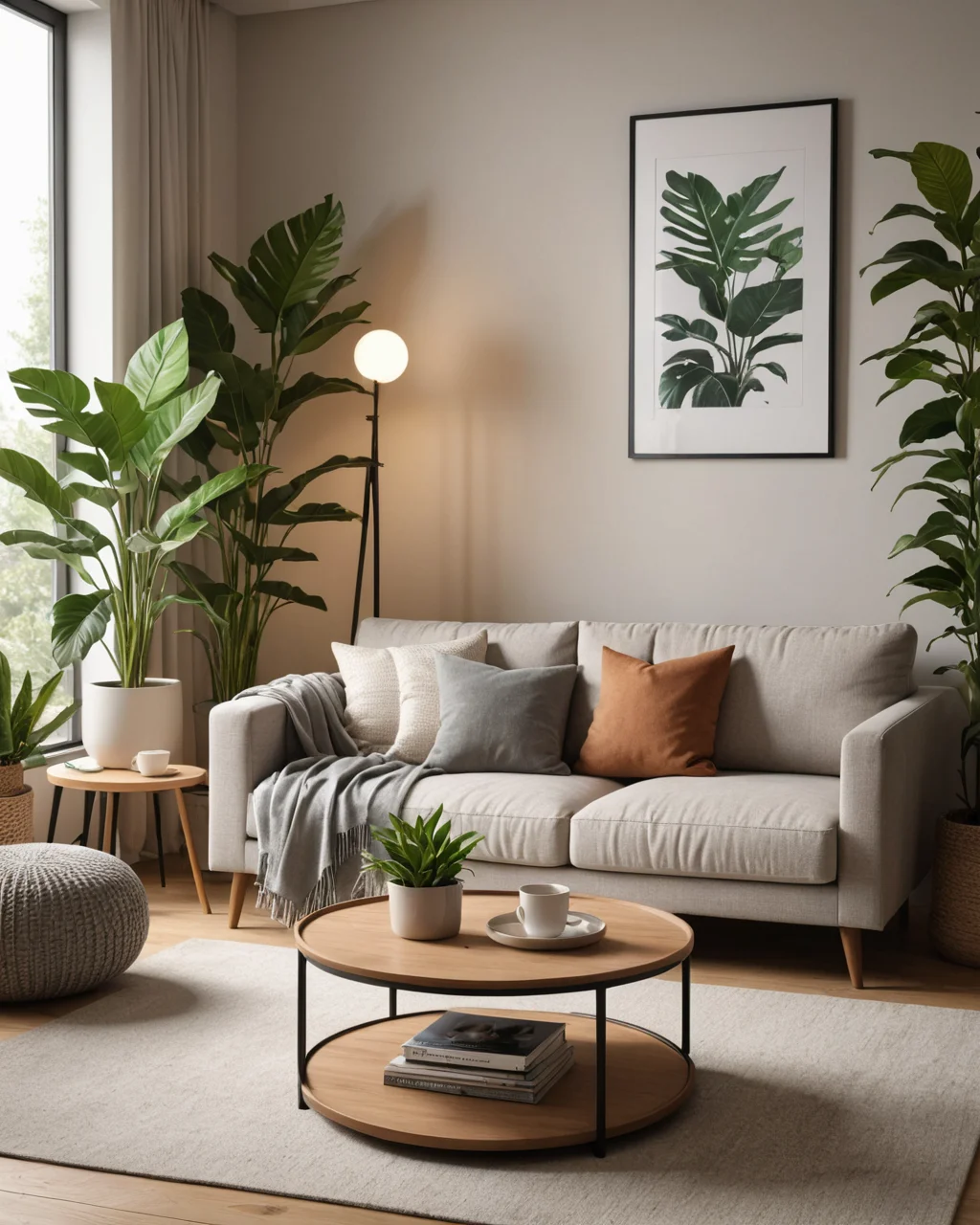
Creating cozy rest areas is a key element of Feng Shui that will help you relax and recharge after a long day. In a small apartment, it is important to consider how to organize the space so that there is enough room for rest and energy recovery. To do this, designate a corner with a comfortable armchair or sofa where you can read a book or simply relax.
In addition to the rest area, it is also important to organize a space for work and creativity. For example, a desk placed near a window will allow you to get the maximum amount of light and inspiration. Use simple and concise solutions, such as shelves or racks, for storing books and materials to avoid clutter and maintain a sense of lightness.
Functional zones in an apartment can significantly affect the inner state. Well-organized space contributes not only to increased productivity but also to creating an atmosphere conducive to inspiration. Do not forget about decorative elements that can support your concentration and set the right mood.
Nature Indoors: Living Elements
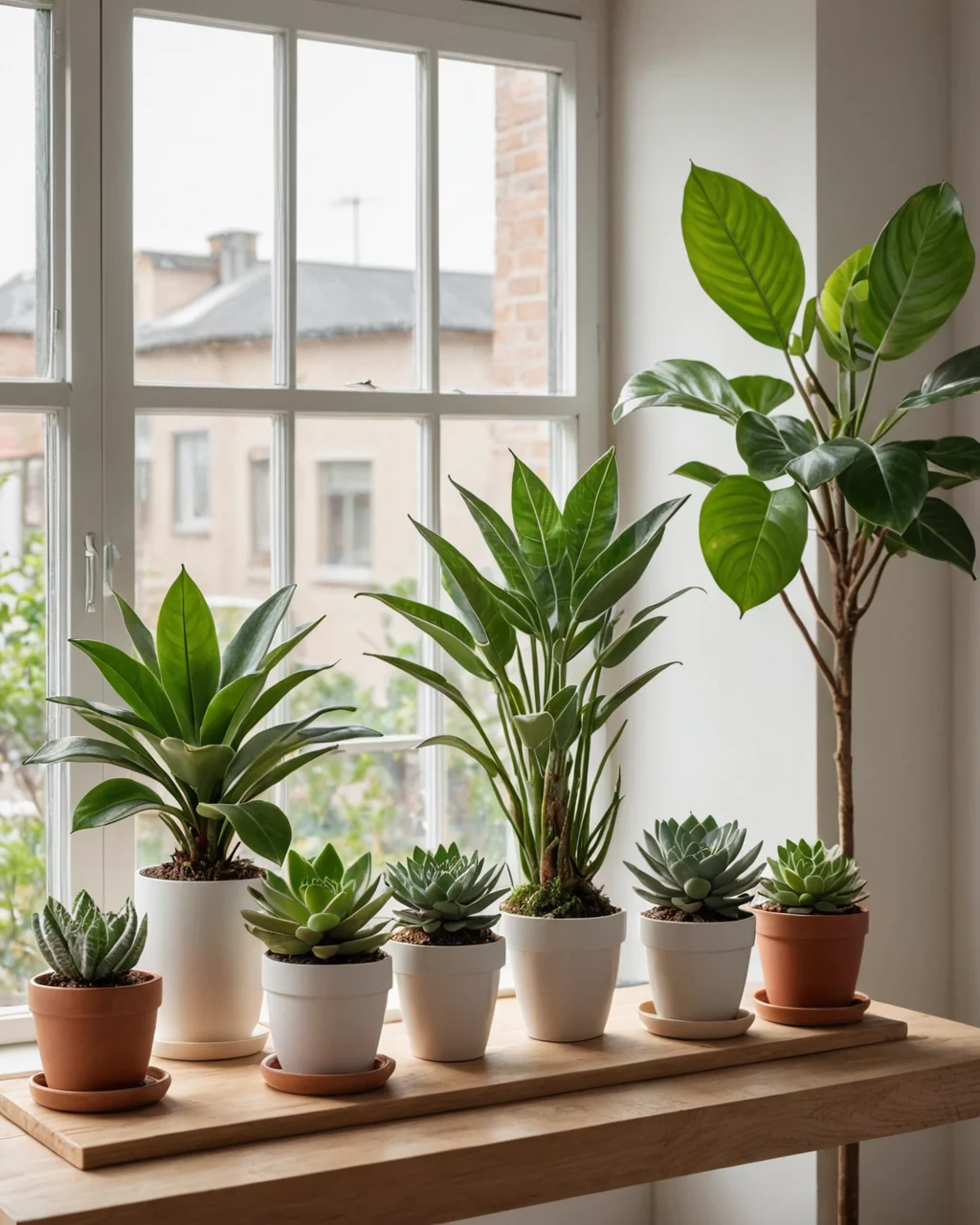
Adding natural elements to the interior is an important aspect of Feng Shui that helps maintain energy and creates a pleasant atmosphere. Choosing plants for a small space can be a challenge, but there are many compact and stylish options that will fit perfectly into your living room. For example, succulents or miniature ficuses will take up minimal space but will add vitality to the space.
The role of living elements in maintaining energy is undeniable. Plants purify the air, humidify it, and create a sense of freshness. In addition, they can become a beautiful accent in the interior, helping to create harmony between nature and living space. Placing plants on open shelves or windowsills will also help attract light and create a cozier atmosphere.
Tips for caring for green companions are also important so that they delight you for a long time. Regular watering, choosing the right soil and location – all this affects the condition of the plants. Be sure to consider the lighting conditions in your room so that your green friends can develop and maintain positive energy in your home.
Lighting: Creating Atmosphere

Lighting is one of the most important aspects that affects the mood and atmosphere in a room. In a small apartment, the balance of natural and artificial lighting plays a crucial role. Try to maximize natural light by leaving windows free of heavy curtains and bulky items. This will help create a sense of spaciousness and lightness.
Artificial lighting should be diverse. Use various light sources: wall sconces, floor lamps, and table lamps to create layers of light and avoid harsh shadows. Soft lighting creates a cozy atmosphere, while bright accents can be used to highlight specific areas or interior items.
The choice of lamps and fixtures is also important for small spaces. Incredibly stylish and compact solutions, such as LED lamps, can significantly improve lighting without taking up much space. Don’t forget about adjustable lamps that will allow you to change the brightness depending on your mood or time of day.
Personal Accents and Their Significance
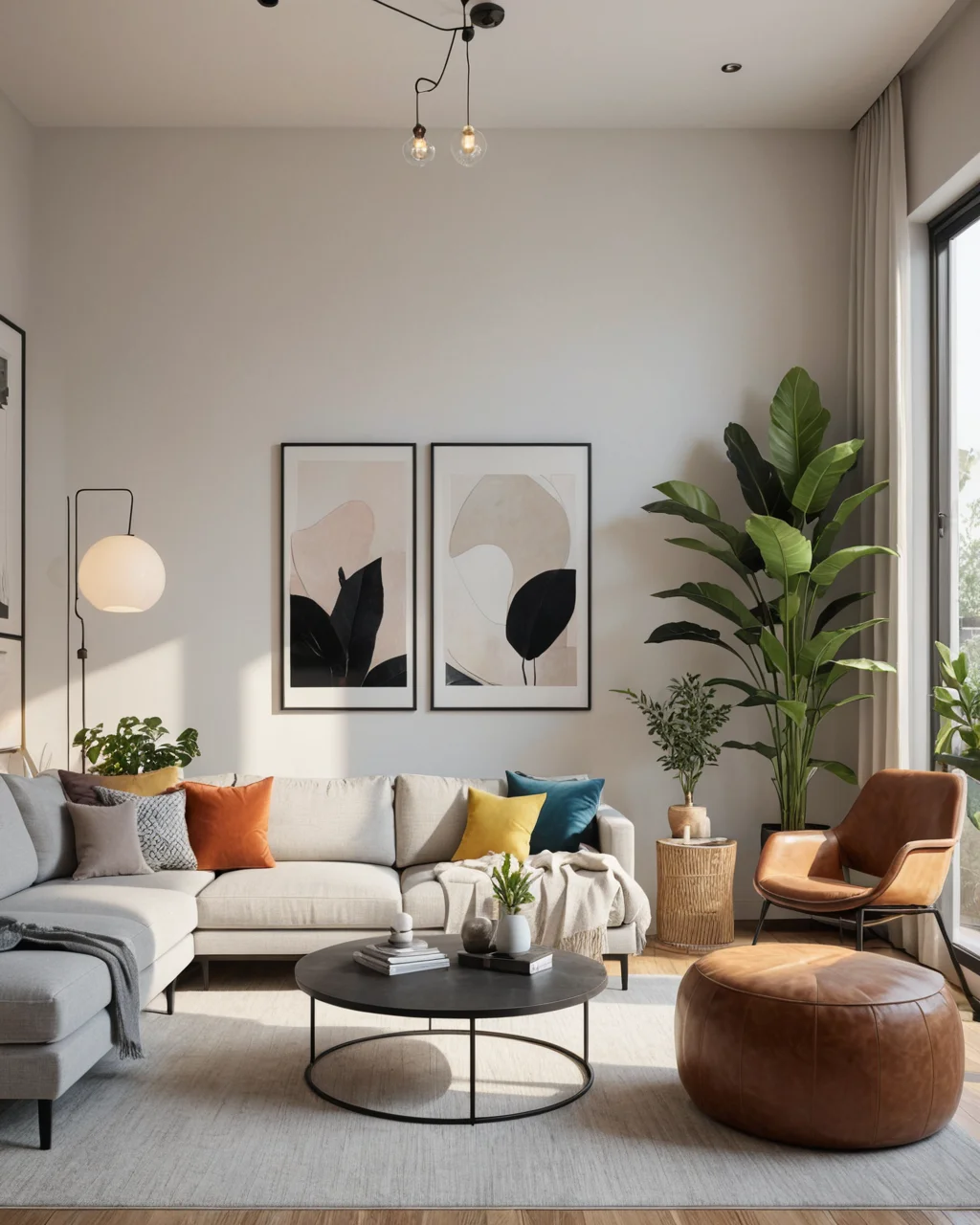
Personal items and decor are the elements that make your living room unique. In Feng Shui, accents play a significant role in shaping the energy of a space. Every item you choose for your home should evoke positive emotions and remind you of something important. Choose things that inspire you and support your inner state.
When choosing decorative items, it is important to remember proportions and balance. Minimalism in the interior can create a sense of lightness and simplicity, while rich accents can bring energy and brightness. Find a balance that reflects your personality and preferences, and do not forget about convenience and comfort.
Finally, try to avoid excessive clutter. Every item should have its place and purpose, as well as evoke positive emotions. By freeing up space from unnecessary things, you not only improve the energy but also create conditions for the free flow of Qi, which will help maintain spiritual strength and harmony in your life.
